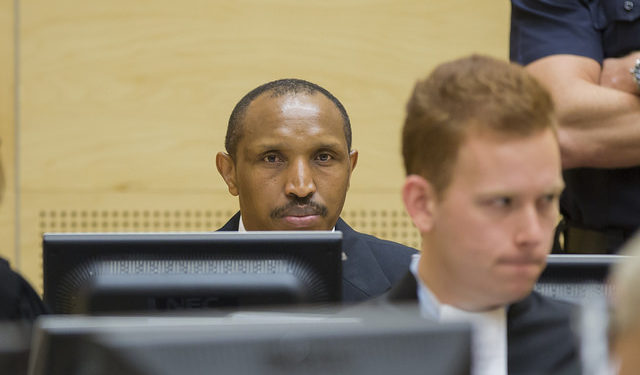Congolese warlord Bosco Ntaganda’s hunger strike enters the 14th day this week as his trial at the International Criminal Court resumes Wednesday.
Judges ordered Ntaganda’s lawyers to continue representing him in spite of his instructions to them to cease acting for him in his absence.
Ntaganda had demanded to see on his wife and children under “normal conditions”. On September 7, 2016, Trial Chamber VI decided to maintain the restrictions imposed on Ntaganda, which prevent him from contacting any person other than his wife and mother, under active monitoring. The judges prohibited all other visits other than family visits over concerns about witness interference.
Ntaganda, 43, has denied participating in the intimidation of witnesses, even though it is alleged that he contacted a witness intermediary on the telephone from his cell at the ICC Detention Center.
Ntaganda’s hunger strike seeks to reverse a decision by ICC judges to keep in place restrictions imposed on his phone calls and visitation rights. The measures were taken in 2014 amid concerns that he had attempted to interfere with witnesses through an intermediary he had contacted from his cell by telephone.
Some of the charges include the killing at least 800 civilians during separate attacks on a number of villages between 2002 and 2003, the recruitment of child soldiers, as well as raping girl soldiers and keeping them as sex slaves.
“How long can this situation last? Is it the kind of justice we want before the International Criminal Court? We can’t ignore the absence of the Accused whose current state of health is rapidly deteriorating,” said Ntaganda’s lead counsel Stéphane Bourgon.
Ntaganda surrendered to the United States embassy in Kigali in 2013 before being transferred to The Hague for trial on 18 war crimes and crimes against humanity committed in the Democratic Republic of Congo’s Ituri District. When the case started before Trial Chamber VI September 2, 2015, Ntaganda pleaded not guilty to all charges against him.







